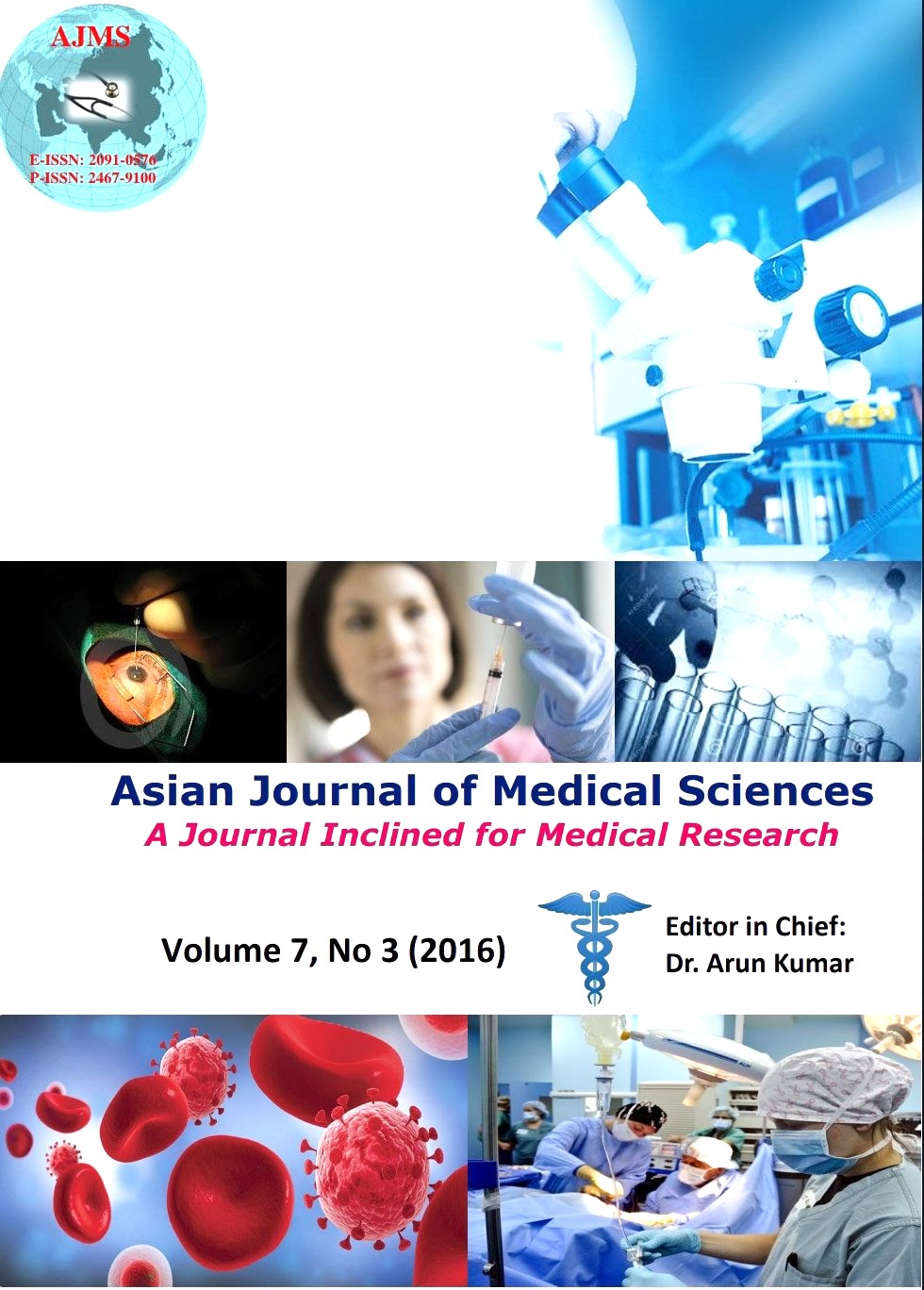Serum trace metals in Pre-Eclamptic Nigerians
Keywords:
Trace metals, pregnant women, Pre-eclampsia, NigeriaAbstract
Background: The role of trace metals in Pathogenesis of Pre-eclampsia has received insufficient attention in Nigeria.
Materials and Methods: We examined the effect of serum levels of some trace metals; selenium (Se), zinc (Zn), copper (Cu), cobalt (Co), and manganese (Mn) in the development of pre-eclampsia in Nigeria. Blood samples were collected from 59 pre-eclamptic, 150 normal pregnant and 122 non pregnant women. Serum Se, Zn, Cu, Co and Mn were determined by AAS.
Results: Result shows significantly lower serum Se, Zn, Cu, Cu: Zn ratio, Co and Mn in pre-eclamptics compared to normal pregnant women (p<0.001). Comparison of normal pregnant women and controls showed non significant difference in the zinc level (P>0.05), significantly lower levels of serum Se, Co, Mn (p<0.00011, p=0.0022, p<0.0001 respectively) and significantly raised copper level (p<0.001) in normal pregnant women compared to controls. Serum Se, Zn, Co and Mn were significantly lower (p<0.001) while serum copper and Cu: Zn ratio were significantly higher (p<0.001) in pregnant women compared to controls. ANOVA shows significant progressive decreases in serum Se, Zn Co and Mn, from controls to normal pregnant women and pre-eclamptics (p<0.0001).
Conclusion: Decreases in serum level of Se, Zn, Cu, Cu: Zn ratio, Co and Mn may play important role in the pathogenesis of pre-eclampsia.
Asian Journal of Medical Sciences Vol. 7(3) 2016 78-83
Downloads
Downloads
Published
How to Cite
Issue
Section
License
Authors who publish with this journal agree to the following terms:
- The journal holds copyright and publishes the work under a Creative Commons CC-BY-NC license that permits use, distribution and reprduction in any medium, provided the original work is properly cited and is not used for commercial purposes. The journal should be recognised as the original publisher of this work.
- Authors are able to enter into separate, additional contractual arrangements for the non-exclusive distribution of the journal's published version of the work (e.g., post it to an institutional repository or publish it in a book), with an acknowledgement of its initial publication in this journal.
- Authors are permitted and encouraged to post their work online (e.g., in institutional repositories or on their website) prior to and during the submission process, as it can lead to productive exchanges, as well as earlier and greater citation of published work (See The Effect of Open Access).




